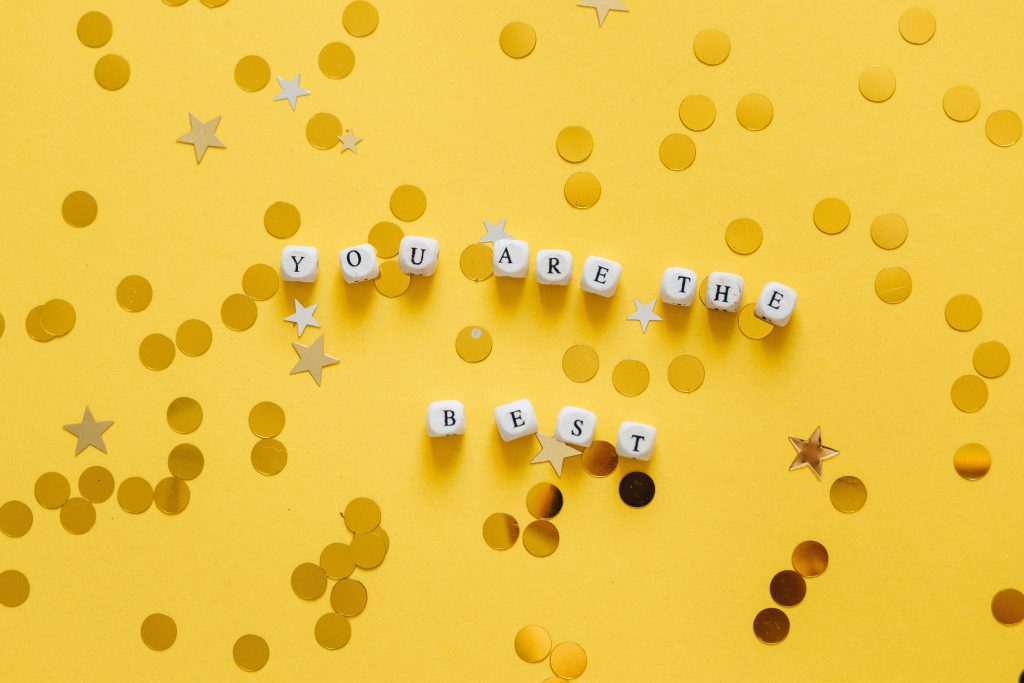The way we typically think of achievement is unhelpful for those of us with anxiety or depression.
When we think about the things we need to get done (but are avoiding), we usually think of them in terms of producing an output. E.g., wash the dishes, do the laundry, apply for a job, read a chapter of a book etc.
But this way of thinking places the focus on achieving the final output. The final output often requires lots of smaller steps and a considerable time investment (as struggling with mental health issues can make ordinary tasks take longer). Because the final output is so daunting, it gets delayed and avoided.
It’s also easy to dismiss the achievement of producing an output if it caused a lot of distress in the process of achieving it.
You may end up having conversations which look a bit like this:

“Well done for completing X!”

“Yeah, but it was really hard, and I felt awful”.
Although the achievement was made, the way it made you feel makes the achievement easy to dismiss. The payoff just wasn’t worth the effort put in, so the effort put in becomes a negative rather than a positive.
Try breaking tasks down to make them less distressing.
Breaking tasks down into small sub-tasks can help us feel less intimidated by them. For example, gathering the dirty dishes from around the house and putting them next to the sink is easier to achieve than washing all the dirty dishes in the house.
Breaking down tasks this way helps us recognise the achievement in completing things a little bit at a time. You are taking a step towards a bigger goal.
Because each task is less daunting, it puts less strain on our minds. Once the small tasks are added up and the end goal is achieved, the overall distress felt should be less than if we had done it all in one go.
Less distress means a more positive experience, and an increased ability to see the positive of the achievement.
If smaller tasks don’t work for you, try timed tasks instead.
Unfortunately, if we are in the grips of anxiety or depression, even smaller tasks can seem overwhelming and insurmountable.
Another way to approach them is to focus on the amount of time you will spend, not the outcome you will achieve (even if you broke the task down).
So, if gathering the dirty dishes from around the house would take you half an hour, and that is too much for you (which sometimes it may be), then setting yourself the goal of gathering dishes for 5 minutes may be more achievable.
The achievement is made regardless of how many dishes were gathered because the achievement is that you have TRIED. And trying is fundamental to achieving.
If there is a clear finishing time to your task (not just an arbitrary “when it’s done”), then you know exactly how long you need to focus for. This can make tasks (whether small or large) much more bite sized.
I recommend setting an actual timer on your phone to help you stay on task and rest when you told yourself you would.
This is important, because at the end of the specified time period, you have achieved your goal and you DESERVE to rest. Not resting would invalidate your achievement. So, make sure you are sticking to your own schedule!

It’s not easy to re-train your brain to see achievement differently, but it can be done.
Humans are constantly learning from the moment they are born. Your brain is incredibly powerful and has the capacity to learn a different definition of achievement.
It can help your brain learn if after each mini goal achieved, you do something rewarding. This needs to be something you get genuine enjoyment from (so scrolling through social media probably doesn’t count)!
If you don’t get enjoyment from anything right now, try and choose an activity you used to enjoy doing before you became unwell. Taking a nap or doing a restful activity first is good, but also try and find something to reward yourself with to reinforce the new definition of achievement afterwards.
Achievement is personal, don’t let someone else tell you your achievements are not worthwhile.
Family members, friends and “successful” people often unintentionally make us feel bad about our achievements. This is because they don’t fully understand why it was an achievement for us. This is not their fault exactly (although if they tried to understand it would help). But it can be demoralising non-the-less.
The reality is that regardless of what other’s think, you know what is a challenge for you. If running half-marathon around the park every morning is easy for you but boarding a plane is terrifying, then boarding a plane is an achievement. If you are climbing the career ladder with ease but the thought of going to a Zoom work “party” makes you want to hide, then spending half an hour at that party would be a huge achievement.
Everyone has things they struggle with, therefore what counts as an achievement will also be different for everyone. Don’t let someone else’s interpretation of what achievement means to them impact on what it means to you.

Get support setting realistic and manageable goals.
I hope these strategies help you finally cross something off your to-do list. Of course, sometimes we can read and understand what we need to do to help ourselves, but still struggle to do it.
Speaking to a counsellor about how you feel and what you want to achieve can be a great first step. They can help you set realistic and manageable goals (and build in those all-important rewards). They will also be there to encourage you and help you challenge dismissive thoughts about your achievements.
If you would like to see if counselling is right for you, get in touch with me to arrange an assessment session.
Assessment sessions are just a fancy way of saying “getting to know you” sessions and (despite the funny choice of name) do not mean you are being tested or scored.
You can send me a message at: sophie@sbcounselling.co.uk or to: 07588 117305 . You can also give me a call (if that’s more your thing).








